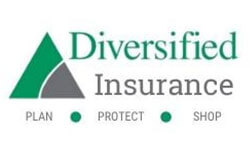What Type of Life Insurance Policy Generates Immediate Cash Value?
Table of Contents
What Type of Life Insurance Policy Generates Immediate Cash Value?
Are you looking for a life insurance policy that not only protects your loved ones but also generates immediate cash value? Look no further! In this article, we will explore the different types of life insurance policies that offer this unique benefit.
Having cash value in your life insurance policy can be a game-changer. It provides you with a financial cushion that can be used for emergencies, educational expenses, or even supplementing your retirement funds. However not all life insurance policies have this feature.
We will delve into various types of life insurance policies, including whole life insurance and universal life insurance, which can accumulate cash value over time. These policies offer the benefit of both protection and investment, allowing you to access funds when you need them the most.
Whether you are a young professional starting a family or a retiree looking to secure your legacy, understanding the options available to you is crucial. Join us as we uncover the details behind life insurance policies that generate immediate cash value and discover the one that best suits your needs and financial goals.
Understanding Life Insurance Policies
Life insurance provides financial protection for your loved ones in the event of your death. It ensures that your family will be taken care of financially, even when you are no longer there to provide for them. Life insurance policies come in various types, each with its own set of features and benefits.
What is Cash Value?
Before we dive into the types of life insurance policies that generate immediate cash value, it’s important to understand what cash value is. Cash value is the portion of your policy that accumulates over time and can be accessed by the policyholder. It serves as a savings component, allowing you to build up funds that you can use during your lifetime.
The cash value grows tax-deferred, meaning you won’t have to pay taxes on the growth until you withdraw the funds. This makes it an attractive option for individuals looking to grow their wealth while also having life insurance coverage.
Types of Life Insurance Policies
There are several types of life insurance policies available in the market, each with its own unique features and benefits. Let’s take a closer look at the most common types of life insurance policies and how they generate immediate cash value.
Whole Life Insurance Policies and Their Cash Value
Whole life insurance policies are a type of permanent life insurance that provides coverage for the entire duration of your life. These policies have a fixed premium and a death benefit that is paid out to your beneficiaries upon your death.
One of the key advantages of whole life insurance policies is that they accumulate cash value over time. A portion of your premium goes towards building cash value, which grows at a guaranteed rate set by the insurance company. This cash value can be accessed through policy loans or withdrawals, providing you with immediate funds when you need them.
Universal Life Insurance Policies and Their Cash Value
Universal life insurance policies are another type of permanent life insurance that offers flexibility in terms of premium payments and death benefit amounts. These policies also accumulate cash value, which grows based on the performance of the underlying investments chosen by the policyholder.
The cash value in universal life insurance policies can be accessed through policy loans or withdrawals, similar to whole life insurance policies. However, it’s important to note that the cash value growth in universal life insurance is not guaranteed and can fluctuate based on market conditions.
Variable Life Insurance Policies and Their Cash Value
Variable life insurance policies are a type of permanent life insurance that allows policyholders to invest their premiums in various investment options such as stocks, bonds, and mutual funds. These policies offer the potential for higher returns but also come with higher risks.
The cash value in variable life insurance policies is directly tied to the performance of the underlying investments. If the investments perform well, the cash value can grow significantly. However, if the investments perform poorly, the cash value can decrease.
Term Life Insurance Policies and Their Lack of Cash Value
Unlike permanent life insurance policies, term life insurance policies do not accumulate cash value. These policies provide coverage for a specific term, typically 10, 20, or 30 years. If the policyholder passes away during the term, the death benefit is paid out to the beneficiaries. However, if the policyholder outlives the term, there is no payout.
Term life insurance policies are a cost-effective option for individuals looking for temporary coverage without the need for cash value accumulation. These policies focus solely on providing financial protection to your loved ones in the event of your death.
Pros and Cons of Life Insurance Policies with Cash Value
Life insurance policies that generate immediate cash value come with their own set of pros and cons. Let’s explore some of the advantages and disadvantages of these policies.
Pros:
- Financial Flexibility: Having cash value in your life insurance policy provides you with financial flexibility. You can access the funds for any purpose, whether it’s covering unexpected expenses or supplementing your retirement income.
- Tax Advantages: The cash value in life insurance policies grows tax-deferred, meaning you won’t have to pay taxes on the growth until you withdraw the funds. This can be advantageous for individuals looking to grow their wealth while minimizing their tax liabilities.
- Asset Protection: In some cases, the cash value in life insurance policies is protected from creditors. This means that even if you face financial difficulties, your life insurance cash value may be shielded from potential claims.
Cons:
- Cost: Life insurance policies with cash value tend to have higher premiums compared to term life insurance policies. The cost of building cash value and providing a death benefit can make these policies more expensive.
- Complexities: Managing the cash value component of a life insurance policy can be complex. It requires understanding the investment options, monitoring the performance of the policy, and making informed decisions regarding policy loans and withdrawals.
- Risk of Policy Lapse: If you fail to pay the premiums or withdraw too much cash value, your life insurance policy may lapse, resulting in the loss of coverage and potential tax consequences. It’s important to carefully manage your policy to avoid this risk.
How to Access Cash Value in a Life Insurance Policy
Accessing the cash value in your life insurance policy can be done through policy loans or withdrawals. Policy loans allow you to borrow against the cash value while keeping the policy in force. The loans are typically charged with interest, which needs to be repaid to avoid reducing the death benefit.
Withdrawals, on the other hand, allow you to take out a portion of the cash value without the need to repay it. However, withdrawals may reduce the death benefit and could have tax implications depending on the amount withdrawn and the policy’s basis.
It’s important to consult with a financial advisor or insurance professional before accessing the cash value in your life insurance policy to understand the potential impacts on your overall financial plan.
Conclusion: Choosing the Right Life Insurance Policy for Immediate Cash Value
Life insurance policies that generate immediate cash value offer a unique combination of protection and investment. Whether you opt for whole life insurance, universal life insurance, or variable life insurance, having cash value in your policy can provide you with financial flexibility and peace of mind.
Consider your financial goals, risk tolerance, and long-term plans when choosing a life insurance policy with cash value. It’s important to carefully review the features, benefits, and costs associated with each type of policy to ensure it aligns with your needs.
Remember, life insurance is a long-term commitment, and selecting the right policy can have a significant impact on your financial future. Take the time to evaluate your options, seek professional advice, and make an informed decision that protects your loved ones and helps you achieve your financial goals.




